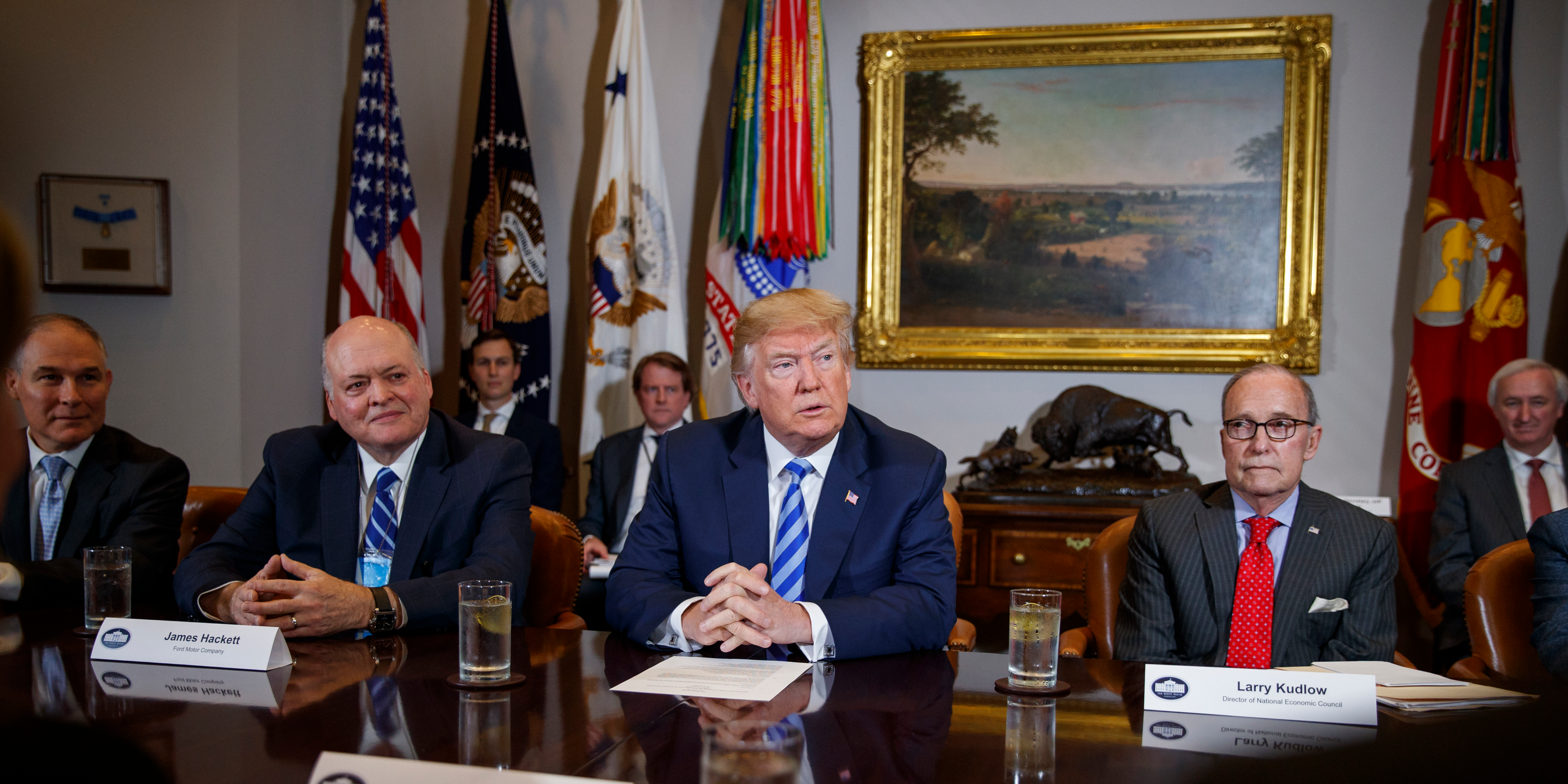- President Donald Trump has privately expressed concerns that opponents are exaggerating the prospects of a recession to damage his reelection chances in 2020, The New York Times reported Sunday.
- Spooked by economic data, the president last week sought the advice of finance bosses on the prospects for the US economy, according to reports.
- A rare inverted yield curve in bond markets and global economic slowdown has been cited by some economists as indicating that a recession may be on its way.
- Visit Business Insider’s homepage for more stories.
President Donald Trump has claimed in private conversations that opponents are conspiring against him to skew economic data and damage his chances of reelection in 2020, The New York Times reported Sunday.
Sources familiar with the matter told The Times on condition of anonymity that the president had told aides and allies that opponents were seeking to rob him of a key strength entering the 2020 election campaign – the strength of the economy during his presidency.
Agitated by news reports and warnings by economists of recession signals, the president has privately claimed that “forces that do not want him to win” have been exaggerating the damage his trade war has caused the global economy, according to the report. Trump has repeatedly aired conspiracy theories during his presidency, on issues such as the recent death of the disgraced financier Jeffrey Epstein as well as Hillary Clinton’s private email server.

The president has also sought to blame critics for the data in tweets and public statements, last week claiming that "the Fake News Media is doing everything they can to crash the economy because they think that will be bad for me and my re-election."
He has also lashed out at Federal Reserve Chairman Jerome Powell, a man he nominated to lead the Fed and called "strong," "committed," and "smart" when he was first appointed.
In a message Sunday, Trump boasted of the strength of the US economy, and in remarks to reporters he said the US economy was outperforming other economies.
"The rest of the world, if you look at Germany, if you look at European Union, frankly, look at the UK - I mean, look at a lot of countries - they're not doing well."
"China is doing poorly," Trump added. "Parts of Asia are doing poorly. We are doing better than any country, or even area, anywhere in the world."
Our economy is the best in the world, by far. Lowest unemployment ever within almost all categories. Poised for big growth after trade deals are completed. Import prices down, China eating Tariffs. Helping targeted Farmers from big Tariff money coming in. Great future for USA!
— Donald J. Trump (@realDonaldTrump) August 18, 2019
Concerns of a recession were heightened last week after the yield curve in the US bond market inverted, an indicator that often points to a coming recession or significant slowdown in economic growth.
An inverted yield curve comes when it is cheaper for the US government to borrow for 10 years than for two. This happens as the interest rates on short-term bonds become higher because people are worried about short-term economic prospects and shy away from investing in short-term debt.
Read more: The yield curve has uninverted, but signs that a recession could be coming still linger
It comes amid a slowdown in major economies around the world including China and Europe's powerhouse, Germany. Some of that slowdown, particularly in China, has been blamed by economists on Trump's trade war.

Some members of Trump's economics team, however, believe that the prospects of recession are being exaggerated, backing up the president, and that sales and employment figures and other data show that the US economy is likely to remain strong.
Average earnings rose 3.2% in the year to July, while nonfarm payrolls, the key measure of US employment, increased by 164,000 jobs in the month.
"There is no recession in sight," the White House economic adviser Larry Kudlow said on "Fox News Sunday."
"Consumers are working," he said. "Their wages are rising. They are spending and they are saving."
Last week, however, The Washington Post reported that some in the administration worried about a looming recession but were not making any formal plans for it, believing that doing so could help precipitate a crash.

